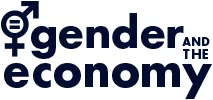GATE’s 7th annual research roundtable brought together a multidisciplinary group of established and emerging scholars from across the University of Toronto who have won research grants from GATE to support their work. The event allowed them to share their latest research, provided an opportunity to gain valuable feedback, and facilitated networking and connection. What did we learn?
Gender wage gap
- Gender-based violence contributes significantly to the persistent gender wage gap in Canada, as well as to a staggering host of macroeconomic consequences including judicial, health, and productivity deficiencies. (Candace Milinkovic and Sujata Mishra)
- Contrary to previous thinking, the wage gap between male and female emergency room physicians is not due to women’s avoidance of more highly paying shifts, but rather due to women having to work fewer hours in total because of their caregiving responsibilities for young children (Shannon Potter)
Diversity interventions in organizations
- Members of traditionally high-status social groups often feel threatened by diversity initiatives and may react by shutting themselves off to new learning. Interventions that leverage remarkable events and interactions could encourage these individuals to open themselves up to transformation instead. (Camellia Bryan)
- Industry awards confer status and visibility to winners, but evaluation biases can limit their equitable distribution. Making awards committees more diverse may not only increase the diversity of award winners, but also increase the representation of women and visible minorities in the industry overall by encouraging more diversity in hiring decisions. (Daphne Baldassari)
- Many organizations have developed community-specific learning spaces for BIPOC employees, but not much is known about whether they increase feelings of belonging and confidence. Current research is exploring how to design these spaces and learning experiences to better ensure positive outcomes for BIPOC employees. (Angie Min Ah Park)
- Gender differences in risk-taking are contextual. Women financial analysts increase risk-taking if information about their evaluations is made public. (Hyeun Lee)
- Identification with different social groups is more complex than a simple “I’m in” or “I’m out”. A complex and dynamic interplay between one’s group identities, identification levels, and social contexts combine to create uniquely individual experiences of group membership. (Geoffrey Leonardelli)
Gender in global contexts
- Exposure to information about different values, attitudes, and beliefs through 3G internet decreased traditional values and increased progressive values (i.e., support for gender equality and LGBT+ rights) across Africa. (Lucienne Talba)
- In an experiment with male and female merchants in a food market in India, women were approached more but were also asked more frequently for discounts. Interestingly, even when women didn’t give a discount, they still sold more than their male counterparts. (Laura Doering)
- Publication rates for women in STEM in East Germany—which had strong labour market opportunities for women and full-time childcare—decreased if they moved to West Germany after reunification, because similar opportunities and supports were not available. (Manuela Collis)




